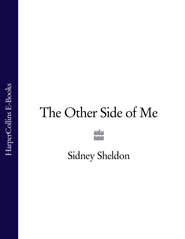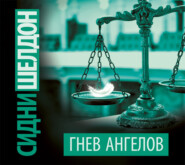По всем вопросам обращайтесь на: info@litportal.ru
(©) 2003-2025.
✖
The Best Laid Plans
Автор
Год написания книги
2018
Настройки чтения
Размер шрифта
Высота строк
Поля
‘Yes.’
‘Mr Chambers sends his regards and asked me to take you to your hotel.’
‘That’s very kind of him.’ Leslie was disappointed. She had hoped that he would come to meet her himself.
‘Mr Chambers would like to know whether you are free to join him for dinner this evening.’
Better. Much better.
‘Please tell him I would be delighted.’
At eight o’clock that evening, Leslie was dining with Henry Chambers. Chambers was a pleasant-looking man, with an aristocratic face, graying brown hair, and an endearing enthusiasm.
He was studying Leslie admiringly. ‘Todd really meant it when he said he was doing me a favor.’
Leslie smiled. ‘Thank you.’
‘What made you decide to come to Phoenix, Leslie?’
You don’t really want to know. ‘I’ve heard so much about it, I thought I might enjoy living here.’
‘It’s a great place. You’ll love it. Arizona has everything – the Grand Canyon, desert, mountains. You can find anything you want here.’
And I have, Leslie thought.
‘You’ll need a place to live. I’m sure I can help you locate something.’
Leslie knew the money she had would last for no more than three months. As it turned out, her plan took no more than two months.
Bookstores were filled with how-to books for women on how to get a man. The various pop psychologies ranged from ‘Play hard to get’ to ‘Get them hooked in bed.’ Leslie followed none of that advice. She had her own method: She teased Henry Chambers. Not physically, but mentally. Henry had never met anyone like her. He was of the old school that believed if a blonde was beautiful, she must be dumb. It never occurred to him that he had always been attracted to women who were beautiful and not overly bright. Leslie was a revelation to him. She was intelligent and articulate and knowledgeable about an amazing range of subjects.
They talked about philosophy and religion and history, and Henry confided to a friend, ‘I think she’s reading up on a lot of things so she can keep up with me.’
Henry Chambers enjoyed Leslie’s company tremendously. He showed her off to his friends and wore her on his arm like a trophy. He took her to the Carefree Wine and Fine Art Festival and to the Actors Theater. They watched the Phoenix Suns play at the America West Arena. They visited the Lyon Gallery in Scottsdale, the Symphony Hall, and the little town of Chandler to see the Doo-dah Parade. One evening, they went to see the Phoenix Roadrunners play hockey.
After the hockey game, Henry said, ‘I really like you a lot, Leslie. I think we’d be great together. I’d like to make love with you.’
She took his hand in hers and said softly, ‘I like you, too, Henry, but the answer is no.’
The following day they had a luncheon date. Henry telephoned Leslie. ‘Why don’t you pick me up at the Star? I want you to see the place.’
‘I’d love to,’ Leslie said. That was what she had been waiting for. There were two other newspapers in Phoenix, the Arizona Republic and the Phoenix Gazette. Henry’s paper, the Star, was the only one losing money.
The offices and production plant of the Phoenix Star were smaller than Leslie had anticipated. Henry took her on a tour, and as Leslie looked around, she thought, This isn’t going to bring down a governor or a president. But it was a stepping-stone. She had plans for it.
Leslie was interested in everything she saw. She kept asking Henry questions, and he kept referring them to Lyle Bannister, the managing editor. Leslie was amazed at how little Henry seemed to know about the newspaper business and how little he cared. It made her all the more determined to learn everything she could.
It happened at the Borgata, a restaurant in a castlelike old Italian village setting. The dinner was superb. They had enjoyed a lobster bisque, medallions of veal with a sauce béarnaise, white asparagus vinaigrette, and a Grand Marnier soufflé. Henry Chambers was charming and easy to be with, and it had been a beautiful evening.
‘I love Phoenix,’ Henry was saying. ‘It’s hard to believe that only fifty years ago the population here was just sixty-five thousand. Now it’s over a million.’
Leslie was curious about something. ‘What made you decide to leave Kentucky and move here, Henry?’
He shrugged. ‘It wasn’t my decision, really. It was my damned lungs. The doctors didn’t know how long I had to live. They told me Arizona would be the best climate for me. So I decided to spend the rest of my life – whatever that means – living it up.’ He smiled at her. ‘And here we are.’ He took her hand in his. ‘When they told me how good it would be for me, they had no idea. You don’t think I’m too old for you, do you?’ he asked anxiously.
Leslie smiled. ‘Too young. Much too young.’
Henry looked at her for a long moment. ‘I’m serious. Will you marry me?’
Leslie closed her eyes for a moment. She could see the hand-painted wooden sign on the Breaks Interstate Park trail: LESLIE, WILL YOU MARRY ME? … ‘I’m afraid I can’t promise you that you’re going to marry a governor, but I’m a pretty good attorney.’
Leslie opened her eyes and looked up at Henry. ‘Yes, I want to marry you.’ More than anything in the world.
They were married two weeks later.
When the wedding announcement appeared in the Lexington Herald-Leader, Senator Todd Davis studied it for a long time. ‘I’m sorry to bother you, Senator, but I wonder if I could see you? I need a favor … Do you know Henry Chambers? … I’d appreciate it if you’d introduce me to him.’
If that’s all she was up to, there would be no problem.
If that’s all she was up to.
Leslie and Henry honeymooned in Paris, and wherever they went, Leslie wondered whether Oliver and Jan had visited those same places, walked those streets, dined there, shopped there. She pictured the two of them together, making love, Oliver whispering the same lies into Jan’s ears that he had whispered into hers. Lies that he was going to pay dearly for.
Henry sincerely loved her and went out of his way to make her happy. Under other circumstances, Leslie might have fallen in love with him, but something deep within her had died. I can never trust any man again.
A few days after they returned to Phoenix, Leslie surprised Henry by saying, ‘Henry, I’d like to work at the paper.’
He laughed. ‘Why?’
‘I think it would be interesting. I was an executive at an advertising agency. I could probably help with that part.’
He protested, but in the end, he gave in.
Henry noticed that Leslie read the Lexington Herald-Leader every day.
‘Keeping up with the hometown folks?’ he teased her.
‘In a way,’ Leslie smiled. She avidly read every word that was written about Oliver. She wanted him to be happy and successful. The bigger they are …
When Leslie pointed out to Henry that the Star was losing money, he laughed. ‘Honey, it’s a drop in the bucket. I’ve got money coming in from places you never even heard of. It doesn’t matter.’
But it mattered to Leslie. It mattered a great deal. As she began to get more and more involved in the running of the newspaper, it seemed to her that the biggest reason it was losing money was the unions. The Phoenix Star’s presses were outdated, but the unions refused to let the newspaper put in new equipment, because they said it would cost union members their jobs. They were currently negotiating a new contract with the Star.
When Leslie discussed the situation with Henry, he said, ‘Why do you want to bother with stuff like that? Let’s just have fun.’
‘I’m having fun,’ Leslie assured him.
Leslie had a meeting with Craig McAllister, the Star’s attorney.

















